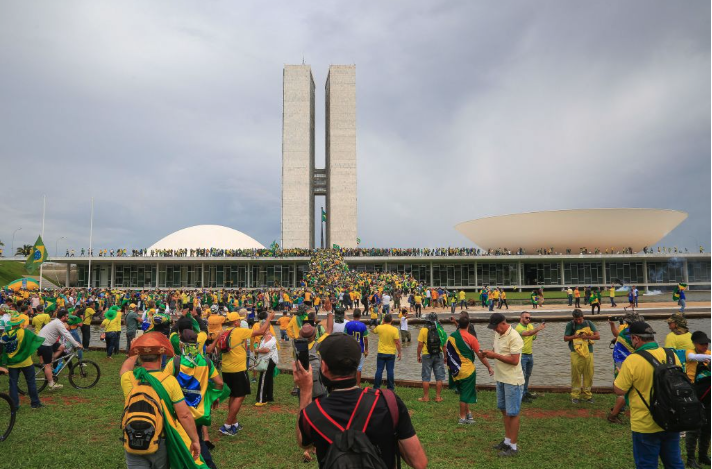After numerous analysts had warned, over the past years, of the risks of a “Brazilian January 6” in the aftermath of a Lula victory, the invasion of Brazil’s Congress—along with the Supreme Court and the presidential palace—does not come as a surprise. Perhaps the only unexpected element was the timing: Rather than between the runoff and inauguration, the attack occurred a week after Lula was sworn in as president.
Still, given all the evidence—including a strong presence of bolsonaristas camping in front of the army headquarters since November asking for a coup—the police’s failure to prevent the invasion raises numerous questions about whether the security forces in the capital—overseen by Brasília’s Governor Ibaneis Rocha, a Bolsonaro ally—willfully ignored the risk, or, worse, possibly tacitly supported the vandals. (Rocha was suspended from office for 90 days by the Supreme Court, pending investigation into his responsibility or mission.)
This points to the big difference between the United States’ January 6 and Brazil’s January 8: While President Joe Biden worried little about anti-democratic tendencies in the United States’ armed forces and police, the episode in Brasília shows that Lula may have to prioritize tackling authoritarian sentiment in…
Read full text here









